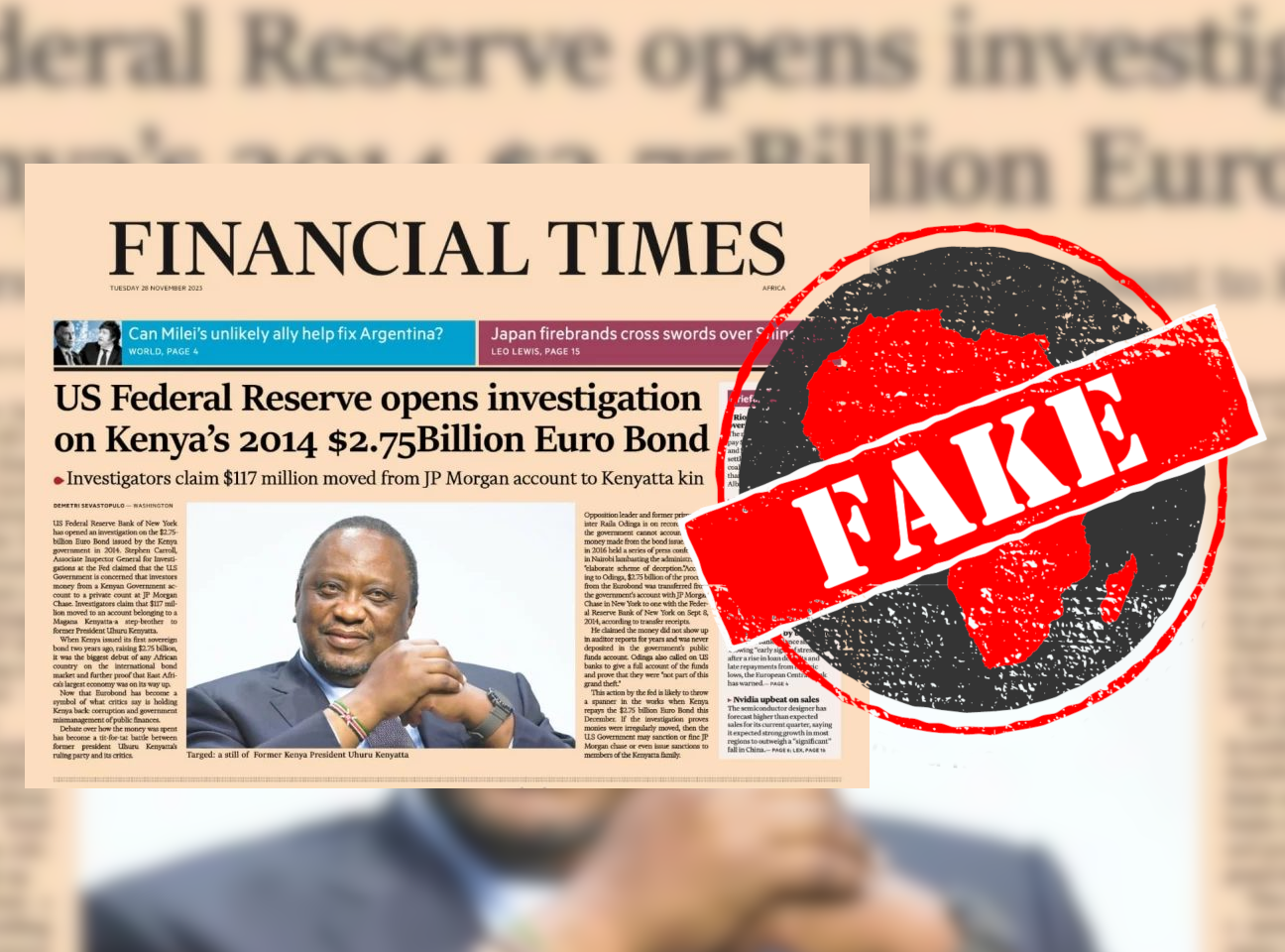IN SHORT: Fake newspaper front pages are increasingly circulating on Kenyan social media platforms. One example is a cover claiming that the US Federal Reserve has launched an investigation into Kenya's 2014 Eurobond.
An image of what appears to be the front page of the UK’s Financial Times has been shared online in Kenya with the headline: “US Federal reserve opens investigation on Kenya’s 2014 $2.75 billion euro bond.”
The Federal Reserve System is the central bank of the United States.
The page features a picture of Kenya's former president Uhuru Kenyatta. The strap line adds: “Investigators claim $117 million moved from JP Morgan account to Kenyatta kin.”
The date of the page is 28 November 2023. The alleged author of the article is given as Demetri Sevastopulo.
In June 2014, Kenyatta announced that Kenya had received a US$2 billion Eurobond, earmarked for general budget support, including infrastructure financing and the repayment of a syndicated loan.
A Eurobond is a loan given out in a currency that is different to the currency of the country in which it is issued.
However, despite the receipt of these funds, there have been repeated questions over the years about how the money has been spent, including by the country's auditor general.
The bond matures in June 2023. There are concerns about the country's ability to repay.
The front page has also been shared here, here, here, here, here, here, here, here, here and here.
But is this a legitimate Financial Times cover? We checked.

‘A complete fake’
Demetri Sevastopulo is the US-China correspondent at the Financial Times. On 1 December he distanced himself from the article.
“This is a complete fake. I did not write any story about Kenya. Mr Kositany, I hope you are more careful about how you run your airports and you should be ashamed for spreading such #fakenews,” reads his post on his X, formerly Twitter, account.
Caleb Kositany is the chair of Kenya Airports Authority, and who shared the alleged story with his more than 385,000 followers.
Furthermore, the lead story on the front page of the Financial Times for 28 November is different from the one in question. The main story shared by the newspaper on its official X account was titled: “Musk meeting extension to truce in Gaza.”
The circulating cover page is therefore fake and should be ignored.
Republish our content for free
For publishers: what to do if your post is rated false
A fact-checker has rated your Facebook or Instagram post as “false”, “altered”, “partly false” or “missing context”. This could have serious consequences. What do you do?
Click on our guide for the steps you should follow.
Publishers guideAfrica Check teams up with Facebook
Africa Check is a partner in Meta's third-party fact-checking programme to help stop the spread of false information on social media.
The content we rate as “false” will be downgraded on Facebook and Instagram. This means fewer people will see it.
You can also help identify false information on Facebook. This guide explains how.


Add new comment